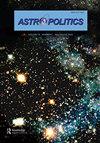比较书评:布莱丁·e·鲍恩,《原罪:外太空的权力、技术和战争》(伦敦:赫斯特公司,2022年),玛丽-简·鲁宾斯坦,《太空乌托邦:企业太空竞赛的危险宗教》(芝加哥:芝加哥大学出版社,2022年)。
Q3 Social Sciences
引用次数: 0
摘要
虽然分析与国家安全和载人航天有关的空间和空间政策仍然是一个小众学术领域,但仍有越来越多的书籍和文章对其进行探索和详细介绍。正是这种活动步伐的加快导致了一个有争议的、竞争的和拥挤的太空领域,从而导致了更多的对抗甚至冲突的机会。在大多数情况下,如果这些审查不是褒奖,它们至少在它们所提倡的活动类型方面是令人鼓舞的,这些活动不仅包括与国家安全和国防有关的活动,而且包括开采和开发天基资源,甚至是外层空间和其他行星体的殖民化。这不应该那么令人惊讶。自从太空时代开始,流行文化就把太空描绘成一个有无限发现和冒险机会的地方。这种早期对太空潜力的迷恋,今天已经演变成亿万富翁太空企业家,颂扬将人类送往外太空和火星的潜力和可能性。但是,这些活动的扩展,就像在地球上一样,并不是没有受到批评。近年来,随着SpaceX等商业太空公司的成功、更广泛的太空活动私有化、美国太空部队的成立、中国和俄罗斯的载人航天登月新计划,以及美国及其合作伙伴在阿尔忒弥斯计划(Artemis program)中重返月球,太空活动的步伐日益加快,达到了一个顶峰。与此同时,太空也有其黑暗的一面,它比它的支持者想要想象的更明显,比如太空冲突、那里的武器化,以及人类在该领域开发的可能延伸。虽然人们最担心的是太空领域爆发的动力冲突可能会污染近地轨道,使太空行动变得困难,但两本新书也说明了太空探索和开发的危险基础:布莱丁·鲍文的《原罪:外层空间的权力、技术和战争》和玛丽-简·鲁宾斯坦的《太空乌托邦:企业太空竞赛的危险宗教》。这两本书从完全不同的方向讨论空间主题,似乎没有什么共同之处。鲁宾斯坦的这本书篇幅较短,可读性很强,深入探讨了历史和宗教主题,强调了它们在殖民和帝国主义行为中的作用,这些行为今天也被用来为杰夫·贝佐斯(Jeff Bezos)和埃隆·马斯克(Elon Musk)等亿万富翁在太空中的行为辩护。另一方面,鲍恩对当今太空战的政治和物理进行了详细的探索。尽管鲍恩用“原罪”这个词来玩弄宗教修辞,但宗教在很大程度上被放在了一边,而它是鲁宾斯坦的中心焦点。然而,这两位作者提出的论点是相同的;也就是说,如今的太空被它与科技之间常常不被承认的关系所污染本文章由计算机程序翻译,如有差异,请以英文原文为准。
Comparative Book Review: Bleddyn E. Bowen, Original Sin: Power, Technology and War in Outer Space (London: Hurst and Company, 2022) and Mary-Jane Rubenstein, Astrotopia: The Dangerous Religion of the Corporate Space Race (Chicago: University of Chicago Press, 2022).
While analysis of space and space policy in relation to national security and human spaceflight remains a niche academic area, there have still been a growing number of books and articles to explore and detail it. It is this increased pace of activity that has led to a space domain that is contested, competitive, and congested leading to more opportunities for confrontations and even conflict. For the most part, if these examinations are not laudatory, they are at least encouraging in terms of the types of activities they have advocated including not only those associated with national security and defense, but the mining and exploitation of space-based resources and even the colonization of outer space and other planetary bodies. This should not be all that surprising. Since the opening of the space age, popular culture has portrayed space as a place with unlimited opportunities for discovery and adventure. This early fascination with space’s potential has today morphed into billionaire space entrepreneurs extolling the potential and possibility of moving humans to outer space and to Mars. But, the extension of such activities, as on Earth, has not come without criticism. The increased pace of activity in space has come to a pinnacle in recent years with the success of commercial space companies, like SpaceX, the privatization of space activities more generally, the creation of the U.S. Space Force, new plans in China and Russia for human spaceflight to the Moon, and a return to the Moon for the United States and its partners in the Artemis program. At the same time, space also comes with a darker side, one that is more visible than its proponents would like to think regarding conflict in space, weaponization there, and the possible extension of human driven exploitation in that domain. While concerns over an outbreak of kinetic conflict in the space domain that threatens to pollute near Earth orbits and make operations in space difficult tend to be the foremost of those, two new books also illustrate the dangerous underpinnings of space exploration and exploitation: Bleddyn Bowen’s Original Sin: Power, Technology and War in Outer Space, and Mary-Jane Rubenstein’s Astrotopia: The Dangerous Religion of the Corporate Space Race. These two books come at the topic of space from quite different directions that seemingly have little in common. Rubenstein’s shorter, eminently readable exploration delves into historical and religious themes throughout history, highlighting their role in colonial and imperial actions that today also serve to justify the actions of billionaires like Jeff Bezos and Elon Musk in space. Bowen, on the other hand, offers a detailed exploration of the politics and physics of space warfare today. Despite Bowen’s play on religious rhetoric with the phrase “original sin,” religion is left much to the side whereas it is the central focus for Rubenstein. However, the argument these two authors put forth is much the same; that is, space today is tainted by its often-unacknowledged relationship with techno-
求助全文
通过发布文献求助,成功后即可免费获取论文全文。
去求助
来源期刊

Astropolitics
Social Sciences-Political Science and International Relations
CiteScore
1.20
自引率
0.00%
发文量
2
期刊介绍:
Astropolitics: The International Journal of Space Politics and Policy is a peer-reviewed academic journal. The journal is dedicated to policy relevant and interdisciplinary analysis of civil, commercial, military, and intelligence space activities. Committed to the highest editorial standards, Astropolitics is the international journal of choice for the academic, policy-maker and professional in the space community.
 求助内容:
求助内容: 应助结果提醒方式:
应助结果提醒方式:


